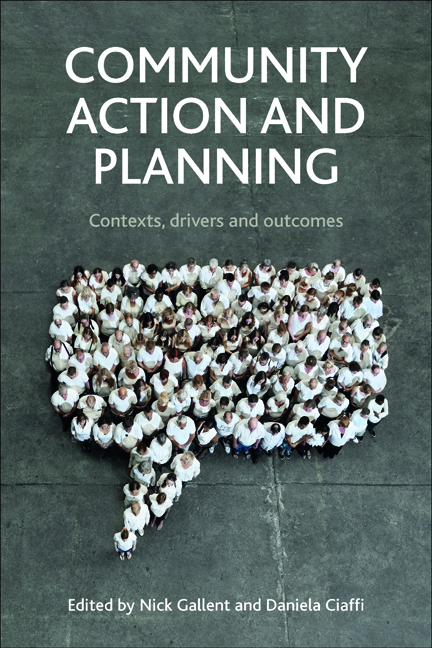4 - From residents to citizens: the emergence of neighbourhood movements in Spain
Published online by Cambridge University Press: 04 March 2022
Summary
Introduction
This chapter analyses the emergence and development of communitybased action in Spain. It focuses on its origins and the conditions making it possible, its development and characteristics, as well as its significance, not only in regard to urban planning, but also in the construction and consolidation of local democracy.
The emergence and development of community-based action was determined by a key factor that has differentiated Spain from other western European countries: its recent history of dictatorship and its subsequent transition to democracy. Despite the end of the dictatorship and the establishment of democratic institutions at all levels of government, this deeper history has had a marked impact on the development and mood of civil society in general, and that of community-based action regarding urban development, in particular. To analyse the origins and characteristics of community-based action it is necessary to understand the process of democratic construction that took place during the Francoist period, which was strongly rooted in the actions of politically active local communities that developed clandestinely during the dictatorship. This ultimately broad opposition movement brought together very heterogeneous people and organisations. The longing, however, for freedom, justice, participation and democracy permeated, from the very beginning, the objectives and forms of action and organisation of the civil society that was being forged and strengthened in the last years of the dictatorship.
In this context, there was one group of organisations that played a fundamental role and that specifically emerged from debates regarding urban space and development. These were the neighbourhood associations. Established during the Franco regime to demand improvements in neighbourhood living conditions, their actions went beyond this specific objective and the form of their actions and organisation generated a strong local democratic dynamic based on the local community. These neighbourhood associations were set up to be a reference for citizen participation and civic demands, especially in the major cities, and they contributed to empowering neighbourhood residents and constructing a critical and active citizenry. The democratic character that they acquired from their very beginnings as organisations, granted them significant legitimacy among the population. In this sense, these associations played a major role in the initial years of democracy, both in improving life in the cities, as well as in the creation and consolidation of a democratic logic.
- Type
- Chapter
- Information
- Community Action and PlanningContexts, Drivers and Outcomes, pp. 59 - 78Publisher: Bristol University PressPrint publication year: 2014
- 1
- Cited by



